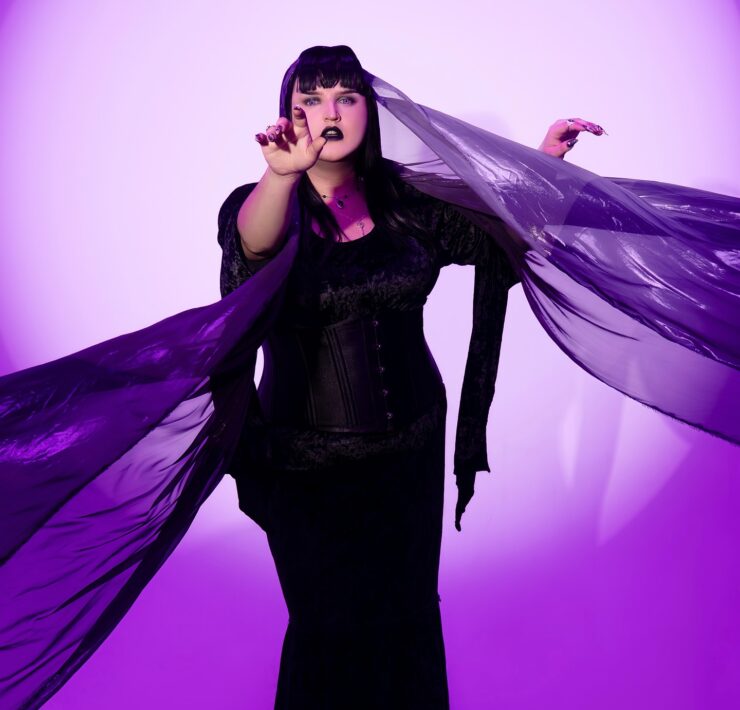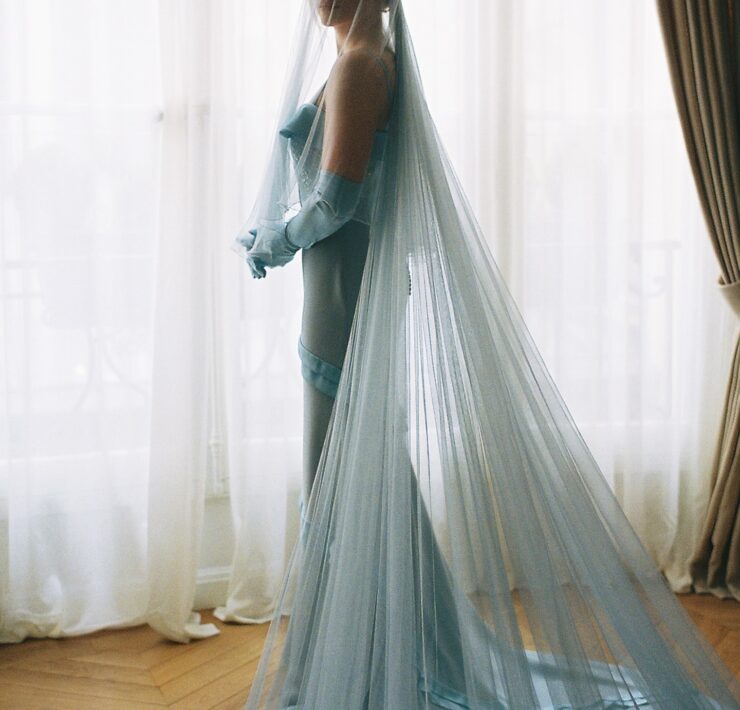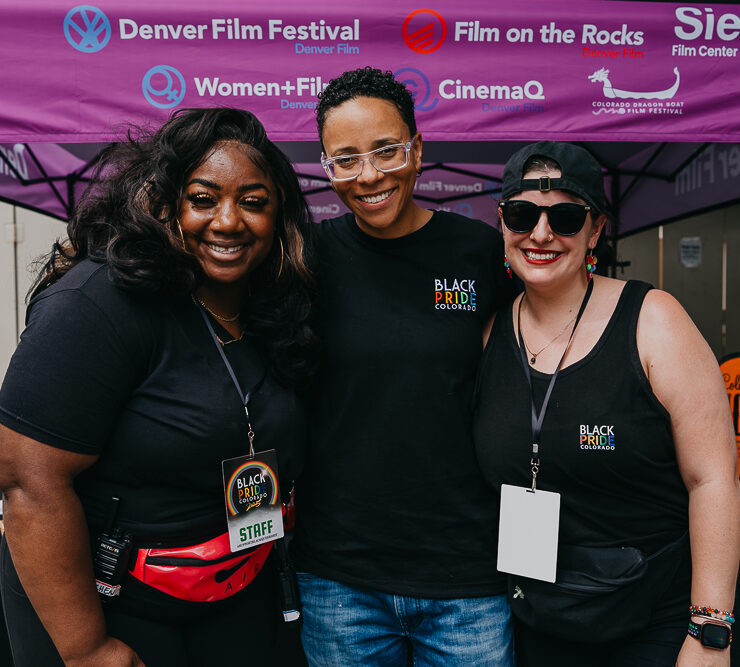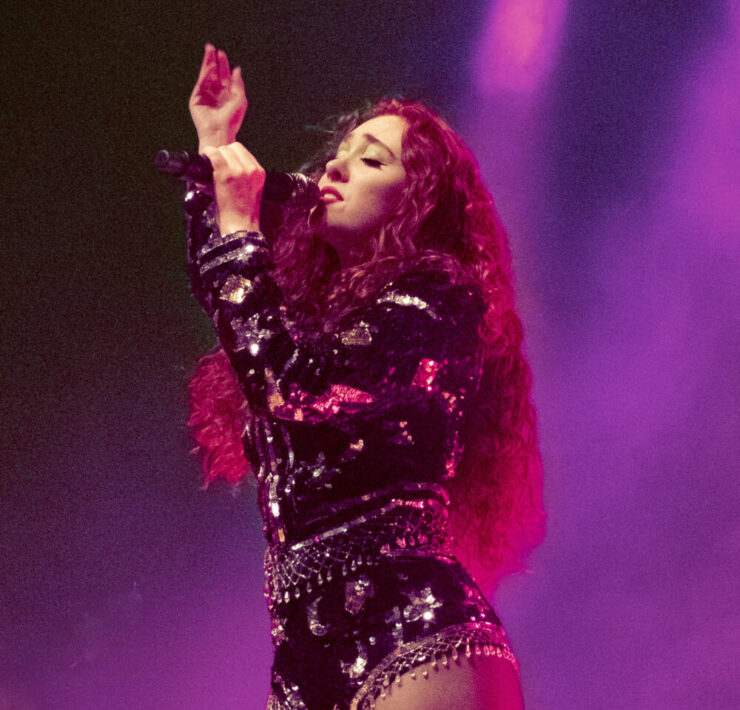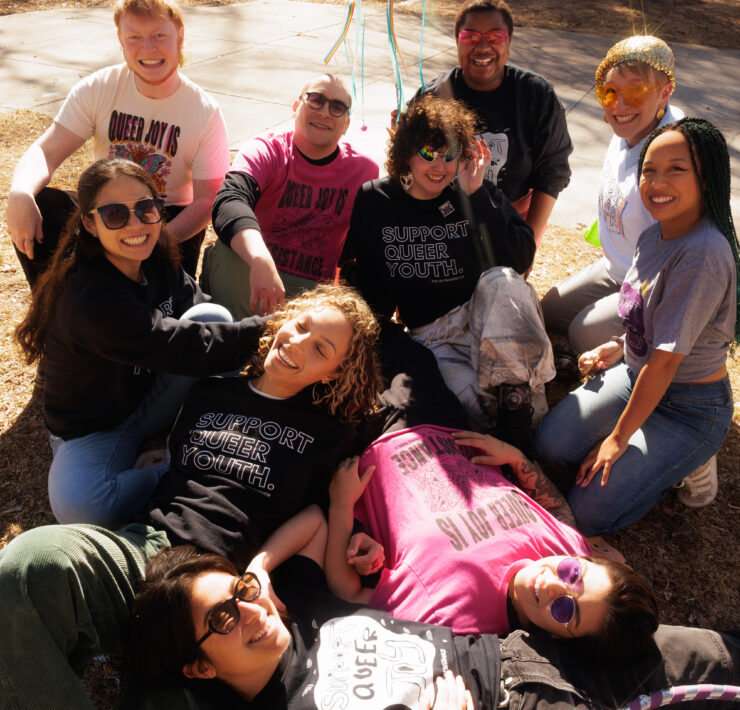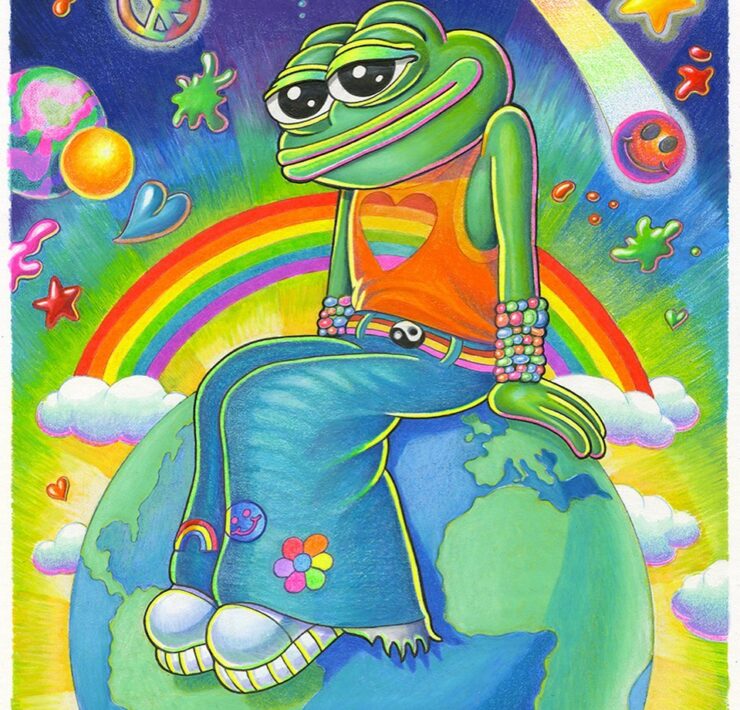Queer Joy and Psychpop from Softee
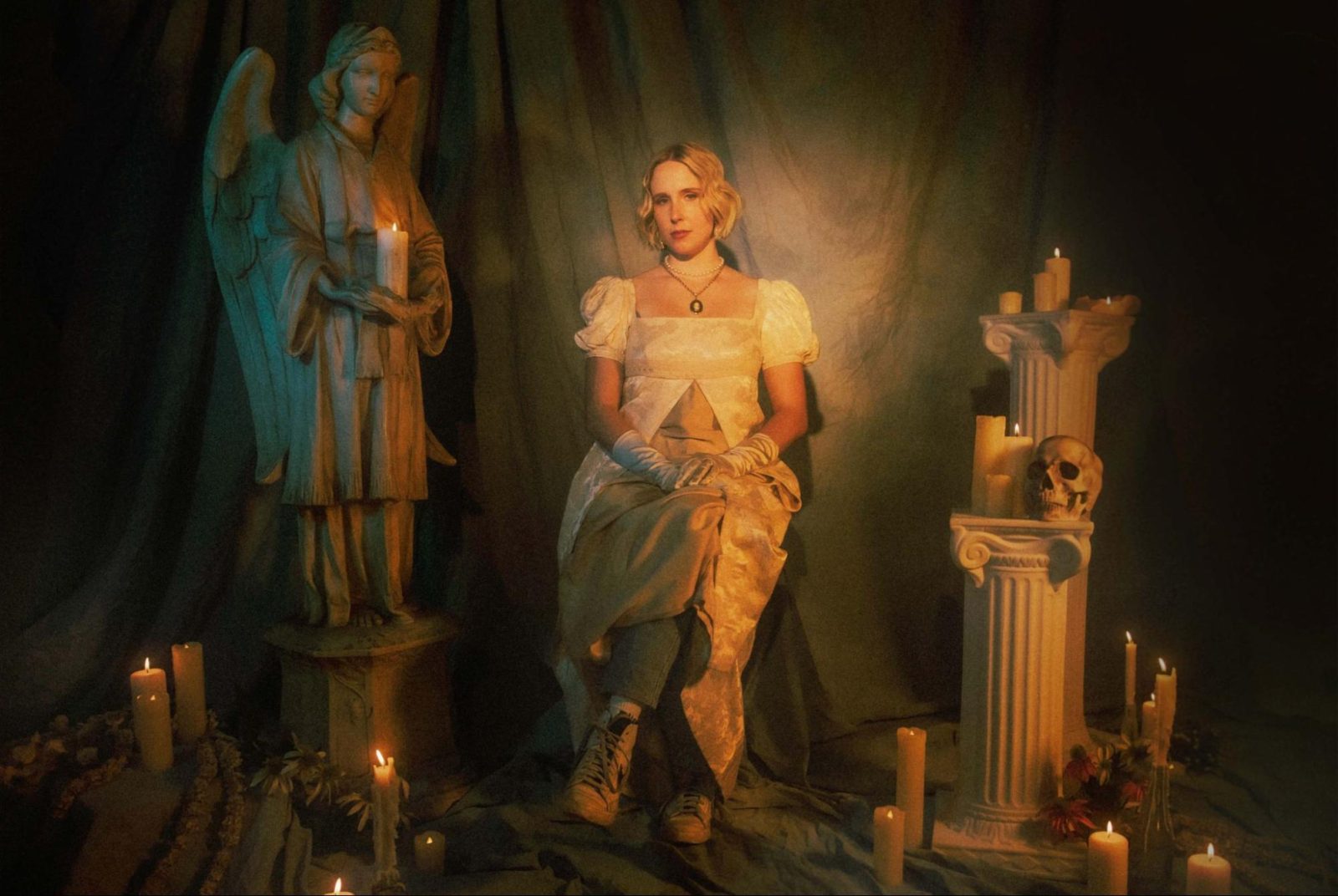
Softee, the stage name of Nina Grollman, is a Brooklyn-based and Juilliard-trained pop artist paving her way in the experimental pop scene. Beginning her performance career on Broadway, Softee’s music style can be described as a danceable, feel-good, genre-bending psychpop that’s meant to make people feel happy and have fun. Releasing her first album Keep On in 2020 and her second album Natural this past May, her newest EP is a DIY pop masterpiece that mixes early 2000s R&B, pop, dance, and electronica. Recorded in Berlin alongside producer sweetbbyj, Softee describes it as a personal and joyous record with each song representing chronological snapshots of her life.
For the readers that haven’t heard about you before, what do you think is the most important thing they should know about you as an artist?
I would say that my music is feel-good queer pop that I hope makes people happy and want to dance. It’s also a little bit angsty, and a way for me to just really try to work out a lot of big feelings. I’m sort of ever-changing and fluid, and another part of the fun in my musical journey is that I’ve gone through a lot of different iterations, but it’s always been danceable and the kind of music that gets stuck in your head.
Have you always been passionate about singing and songwriting?
Yeah, I’ve always loved singing ever since I was really little. I’d literally sing karaoke and make my dad grade me. I didn’t start songwriting until middle school, and it was all really, really angsty. It was a lot of stuff about me pretending to like boys and writing songs about those feelings, and it was me trying to be this romantic, rom-com, angsty person when I actually didn’t feel that way. I would produce in GarageBand a lot in high school and that was really the start of it all. I started Softee in 2019 and it really was a whole other universe to me because that’s when I started writing under a persona rather than just myself, and it was really liberating and freeing to be able to do that.
How did your performing career on Broadway evolve into you creating music and entering the experimental pop scene?
I was making music alongside acting, but I wasn’t really taking it super seriously. I hit a point in my acting career where I felt sort of creatively unsatisfied, and I was really only doing music as more of a hobby. That’s when I decided to take it more seriously for myself because I felt quite powerless as an actor. Songwriting became a huge outlet for me and was very important for my spirit, and creative life. I think that’s how I segued into the pop scene because I truly was like I can’t just do acting. My life was just too much of a roller coaster, and it’s not that pop music isn’t chaotic, but I think having both is really nice because if I just did one thing all the time, I think I’d go crazy.
How would you describe your musical style and aesthetic and are there any artists that have inspired you?
This upcoming record is very R&B early 2000s meets pop, dance, and electronica. Aesthetically, there are a lot of references, especially in the album art to a sort of romantic period. It has slightly medieval vibes, and that came out of the idea that the album itself is called Natural. I feel like it’s actually a representation of the cycle of life and death and rebirth of a relationship. Specifically with the relationship part, I was in the period of breaking up with someone, then quickly fell back in love, and then fell even more deeply in love. To me, that’s a cycle, and I was inspired by this Dutch painting concept from the Baroque period called Vanitas which is a reminder of your mortality. Still life painters would paint a skull, flowers, and a candle to symbolize the idea that life is fleeting and you need to just live in the moment because, in the end, anything could happen. That idea and the painting style just really resonated with me, and that’s kind of the intention behind the aesthetics of the album art. However, a musician that’s inspired me would have to be Robyn. She is probably my biggest influence, and I remember seeing her videos for the first time as a teenager and being like, that is what I want to do. That’s who I want to be. That’s who I want to emulate. I’ve just always been very inspired by everything that she does.
Are there any challenges that you faced as a queer artist in the music industry?
Interestingly, I find that I’m coming up to a moment where queerness can be commodified in a way that sometimes feels strange seeing that queerness is a huge part of my identity. I definitely want to be visible in that way, and I pride myself on that and creating show environments that are super clear and community oriented. However, at the same time I think that the challenge for me right now is that there’s a lot of focus on my queerness to the point where it’s like, well, there’s other things about me other than my queer identity. As a musician, it sometimes feels like it’s almost trendy, and that’s the thing that’s being talked about more than the actual music itself.
What is the concept and idea behind your new album coming out and what do you hope listeners take away from it?
I hope that they understand the journey because this album is actually quite chronological. If you listen to it top-down, it’s really like the story of my life from 2020 to 2021. All the songs are different snapshots of my life in that period of time, and in that way, it’s quite a personal album. When people listen to the album all the way through it’s like that kind of thread connecting everything together. It’s a very joyous record and in a lot of ways it’s like the happiest I’ve ever been. I just want people to feel happy, have fun, and want to dance.
What’s your creative thought process behind the visuals in your music videos, and how do they connect to the song itself?
A lot of it I definitely have to credit my fiance Michelle Ross, who is my creative director. She’s very much the visual part of Softee and comes up with a lot of the concepts for the videos. I think that it comes very organically because she’ll listen to the songs, spend a lot of time with the demos, and then she’ll come back with a perspective that I never would have even thought of for the video, but that is still very deeply connected to what I was thinking about when I was writing the song. In that way, the collaboration is really cool because she’s somebody who obviously knows me really well and understands and connects to my music. The “Isn’t Enough” video that was directed by the brilliant director Bao Ngo is a really good example. She has such a visual mind and that was a really fun process to sort of excavate what the song meant to each of us and create a final visual story out of it. My music videos overall are heavy on the collaboration process, and I really just like to bring in other people that get me, my ideas, and my concepts for the song creating something that in the end just makes sense.
Do you have any future goals that you’re hoping to accomplish as you continue to grow as an artist?
Yes! I feel like I’m just at the beginning, and I really genuinely have so many things I want to do. For example, one of my concrete goals is that I want to play Madison Square Garden. However, in general, I’m just always learning new stuff every day about producing, songwriting, and collaborations, and have been collaborating with a bunch of different people. It’s just been so fun because every new collaboration is like a newfound energy, a new exchange, and a new perspective. I’m a very porous person with the people I trust creatively. I really let them in and try to absorb what they bring to the music, or whatever I’m working on. Man, oh, man I just want to do everything! I want to play live shows a lot more and play across the country, and around the world. I want to keep having as much fun as I’m having now because I’m having a lot of fun, and I don’t want to lose that. I really just have a lot of passion for what I do, and I’m very protective of that because I know plenty of people who have lost that passion or become jaded by the music industry. It’s easy to be jaded, but I also try to really appreciate how many gifts I’ve been given, the places that I hope to go, and the people that I have yet to meet. It’s just cool to be in a place where I get to do this, and I feel very great about where I am right now.
Do you have any advice for other LGBTQ+ artists that are in the industry or that are looking to get into the industry?
Trust your intuition, trust yourself, trust your taste, and trust your judgment. No one knows you better than you, and no one else can tell you how to do things. There’s not one right way to do something, especially in music. A part of being in the industry is that you’re gonna get a lot of different people giving you a lot of opinions about what they think and what you should be doing. You just need to decide that if it’s coming from someone else that that’s not you. So the trick is to stay yourself. I mean, that’s so cliche, but like the more you can listen to your gut – I mean, it took me so long to build up the confidence in myself that I actually have good taste, and once I actually believed that it was a game changer. Suddenly I didn’t need anyone’s validation to know that I was good, and I could just do the things that I liked to do without so much of a judgmental voice in my head. That was really hard-earned, and it’s not easy to get to but, I think for years I was in this position where I just thought, well, I just have to wait for somebody to discover me or validate me in some way because I didn’t trust myself. It wasn’t until I started really digging into production and songwriting and taking it more seriously by putting myself out there that I was like, Oh, I don’t actually need anybody to open this door for me, I can do this myself. I then found that I am actually very capable of doing this by myself, and I didn’t even realize what a delight It would be to get to learn that. I was just having a wonderful conversation with Macy Rodman about this exact thing, specifically queer people and fans in this industry. There were a lot of times early in my career when I was in a room with a lot of straight dudes telling me what to wear, what I need to have, and what I need to be doing to be good and successful or whatever. At first, I was intimidated and took that to heart but then I was like, wait, no, I don’t even like your music and you actually can’t tell me what to do. So you just need to surround yourself with people who you like, and who you appreciate as artists and that’s the community you need to cultivate.
Follow Softee on Instagram @softeepopstar and to stay up-to-date with live shows!
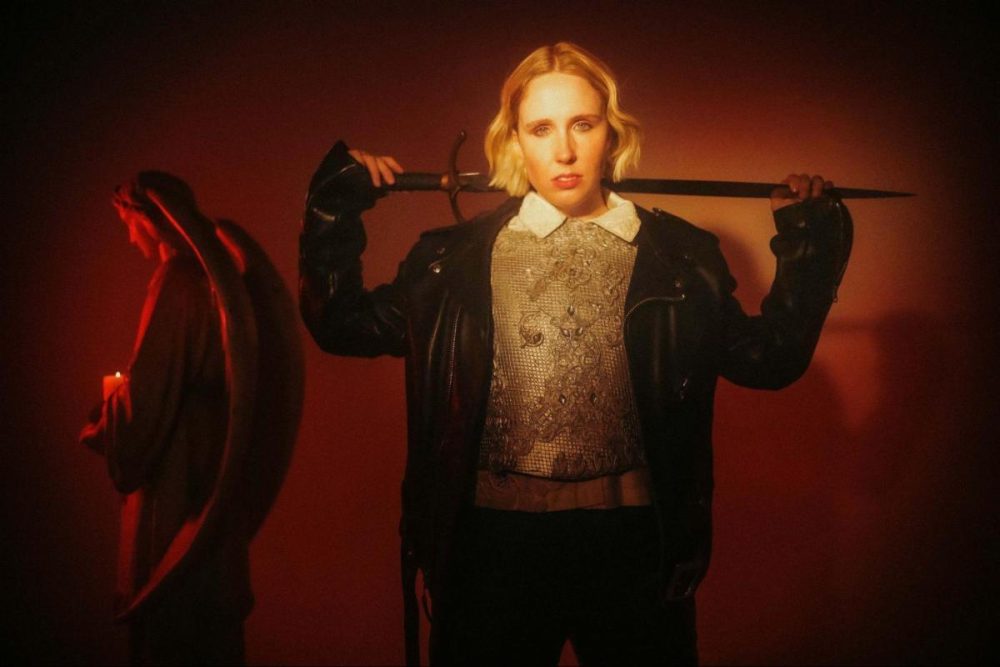
Photos by Meghan Marshall



